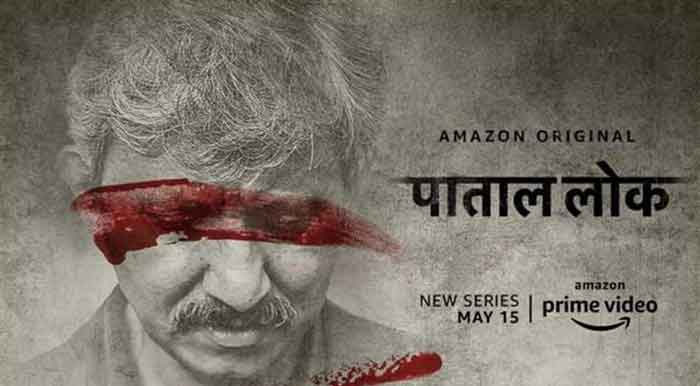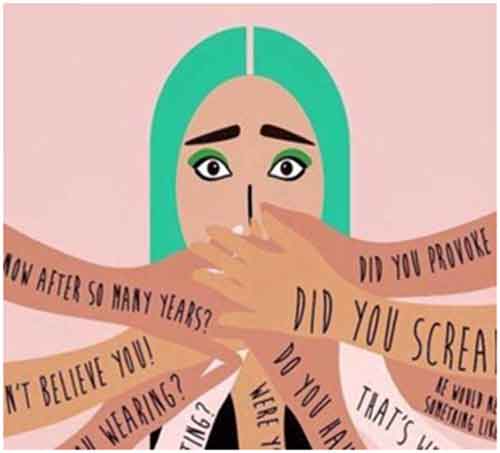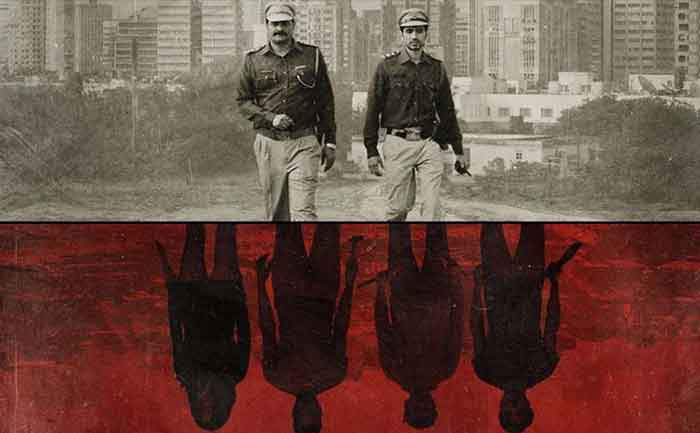
Among many crises unfolding in the form of Corona Pandemic, Amphan cyclone, Indo-Nepal border disputes, etc, a Nepali speaking community in India is grappling with the question of nationality and racism after the recently broadcast web series Pataal Lok in Amazon Prime Video. A dialogue in the second episode of the series which used offensive a sexual and racial slur against Nepali community, a forty-second video clip of it soon got viral in various social media. Many individuals, lawyers and scholars belonging to Nepali community, commonly known as Gorkhas have vividly criticized the scene for its act of defaming certain category of community in India and demanded to “mute the slur, blur the subtitles and uploaded edited video along with an unconditional apology and a disclaimer.[1] However, there is another section of people who rather see such sexual slur against Nepali women in a different light. They highlighted in terms of their own experience of gender violence, racism and everyday oppression in a patriarchal society. One of such writing by Nepali women from JNU reads as follow: “I understand that for some people who are protesting against it have been genuinely offended by it as I had been earlier. However, I fail to understand how there is no mass opposition or outrage when such slurs are given in the real world, even within our community, in social media pages and other platforms in everyday lives”.[2]
Thus, it caught in between the question of “Nationalism” in which the sentiment of being Nepali in India is brought out by those who consider it as an insult to the community and “gender” in which the plight of being women in male-dominated society is vividly highlighted. Furthermore, this debate emerges from two spectra of class status: one who claimed to have watched the web series and understood in a different light rather than just a mere misrepresentation of Nepali women and vividly accused those protesting on the basis of WhatsApp video. While another emerges from those class categories who have to think multiple times before spending Rs .999 for Amazon prime member in this difficult time of the COVID 19, let alone, high-speed internet facility.
It is true that everyone has their own interpretation of the show and have the freedom to express their opinion. However, what provoked me to write this piece on such issue is the ongoing debates in Facebook and other social media regarding whether “the Nepali should be offended by the Pataal Lok or not”. The article titled “I am a Nepali Women, But Pataal Lok does not offend me”[3] by Marina Rai, published in the Quint received much attention in the Facebook page National Forum of Indian Gorkhas (NFIG) and debated heavily not only in terms of critics of the show but also questioned the author standpoint of being Nepali/Gorkhas in the article. So much so that it even received a comment saying “if such video doesn’t offend her dignity as a Nepali woman. She must be from the said community. Or this must an article written by someone else in the name of a Nepali girl”. Thus, the bone of contention evolved between those who proclaimed to be liberal in their thought and decisively stand for the article and those who see it in terms of moral obligation to save the community from such stereotype by Indian popular culture.
Why can’t Nepali women question the very existence of patriarchy and misogamy in their own society? For me, it is not about gender and nationalist, it is about women and their agency. As it is a well noted-fact that the women in any form of society have historically been suppressed under male-dominated world and their struggle of gender equality have spanned across the generation of activists. Even in Nepali society, there has been a rich history of women activism both in literary and political field. In fact, the number of women in Darjeeling Hills since colonial times was considerably large as compared to societies in plains below. However, the gender question remained largely unexplored in the Hills scholarship. One pertinent fact about this historical silence of “women activism” in Nepali public sphere is the absence of manifest gender violence, explicit patriarchal norms and most importantly the overt nationalist discourse deeply enrolled around the sentiment of Bir Gorkhali. So, can women be bir (brave) to represent the birta (braveness) of Gorkha nationalism? The answer is big “No” because the presence of toxic masculinity in such conceptualization of Bir Gorkha has always presented women as subservient to men. Even if the absence of explicit patriarchal norms (unlike in mainland Indian society in the form of dowry and other social obligation) makes gender violence less visible in Nepali society, but women have never been an equal part of men in political decision making. In the famous Gorkhaland movement (both in 1986 and 2017) the women although have been an integral part of the movement but were never given power of decision making. Their gender role of being women (nari), mother (amma) and sister (cheli) obligated them to be behind their male counterpart. Thus, slogans in the Gorkhaland movement like “Agi, agi hida yuba, cheli timro saath cha” [move ahead youth, sister is with you] systematically reinforced the feminine role of women in nationalist discourse. Thus, if one writes their gender experience of being submissive historically in male-centric Nepali society, questioning the very existence of sexual and gender violence in their everyday life, I consider it as a meticulous endeavour to create their agency that can represent their plight of being Nepali women. Henceforth, her nationalist and moral obligation of being Nepali in India should not be charged with unethical questions of “why she stands for the Pataal Lok”. Rather it should be taken as a mirror to examine our own role in creating gender divide within Nepali society. But the Pataal Lok controversy is beyond this gender binary within the society.
The Pataal Lok controversy is about the misrepresentation and re-production of racial discrimination and sexual victimization against a certain category of people based on their physical outlook. Thus, I stand by my position written earlier about the Nepali women controversy in the Pataal Lok that “more than everyday practices of racial stigma, it is an intellectual and institutional misrepresentation of the history of community, region and identity that perpetually reproduce racial segregation in India”.[4] Thus, for me, the using of words “Randi” to identify the certain category of women in popular web series is the institutional reinforcement of sexual violence and racial discrimination through the systematic portrayal of particular type of identity in India rather than as a embellish of the reality. For me, it does not qualify to be a reflection of “reality” (?) because the history of gender discrimination and sexual violence in human society is much older than the nationalist discourse emerged out of colonial modernity. It is therefore not justifiable to equate certain community with certain prejudice as it will have an adverse impact on the identity of the community that is already in crisis. Also, gender is a complex category as do minority is, therefore, the addressing of Nepali women as “Randi” in the Pataal Lok appealed differently to different individual, otherwise, why would the majority of Nepali women prefer to join protest against the Pataal Lok controversy?
Thus, as stated earlier, the class status played a crucial role in such type of web series as one has to carefully investigate to which section of society the series is produced for and who really is in a position to consume it, let alone watch it. Therefore, for me, the controversy on gender and nationalism of being women and being Nepal in India have to go concomitantly rather than in binary because it is as much an institutional serotyping of Nepali in India as it can also be a reflection of masculinity and misogamy within society.
Sangay Tamang is a senior Research Scholar at the Department of Humanities and Social Sciences, Indian Institute of Technology Guwahati.
[1] https://www.thehindu.com/entertainment/gorkhas-demand-amazons-paatal-lok-drop-sexist-slur/article31618858.ece
[2] https://www.thequint.com/entertainment/hot-on-web/paatal-lok-nepali-community-legal-notice-anushka-sharma
[3] https://www.thequint.com/entertainment/hot-on-web/paatal-lok-nepali-community-legal-notice-anushka-sharma
[4] https://countercurrents.org/2020/05/because-they-looked-nepali-objectifying-nepali-women-in-amazon-web-series-paatal lok/?fbclid=IwAR3EvgFSfrH0XfNENS6CnfEMt_Emsv7zHE136KOQwa-Ob-e419v3LZvp5wE
SIGN UP FOR COUNTERCURRENTS DAILY NEWS LETTER











































